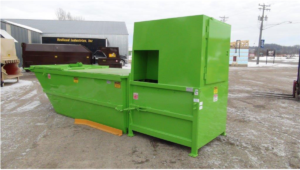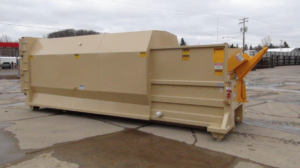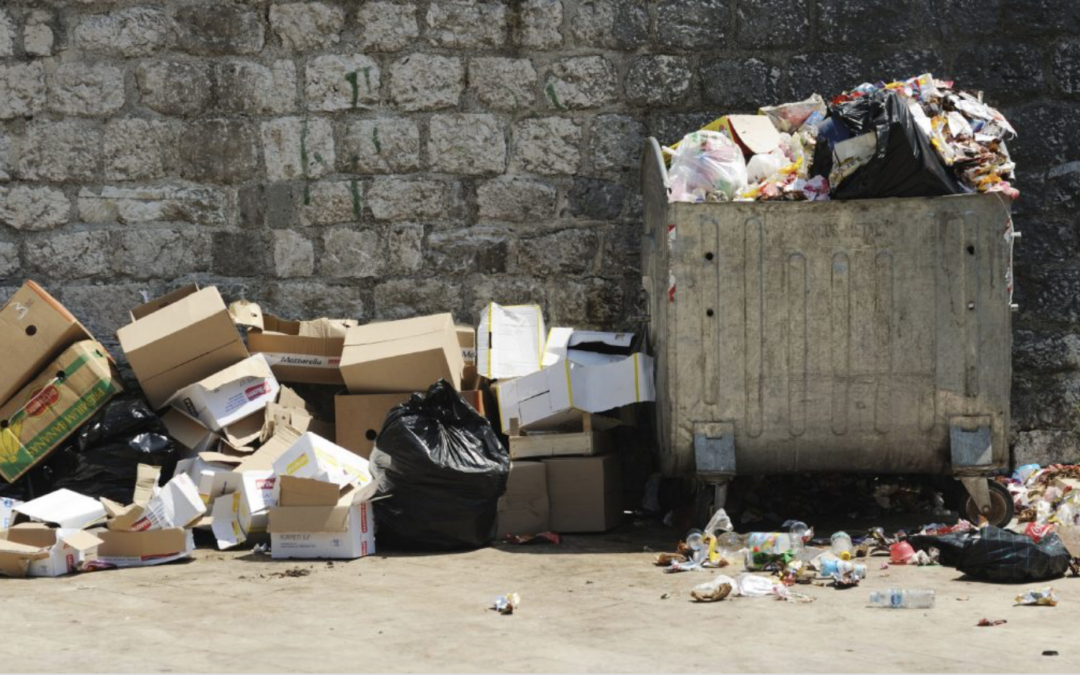Waste disposal. It’s not the most glamorous part of your business operation, but if you’re to manage your waste cost-effectively, you do need to understand the tools of the trade. Is a commercial trash compactor right for your business—and your budget? And, if so, how do you choose from the types of compactors on the market?
Let us fill you in.
Will a commercial compactor deliver ROI?
The short answer is: Not for everyone.
Commercial trash compactors offer tremendous benefits. They can:
- Reduce your trash volume by 75% and slash your garbage hauling bill
- Reduce odors and fire damage
- Protect against pests and dumpster divers
Still, a commercial compactor acquisition has to make sense.
Say you’re a convenience store and your waste hauling needs are adequately met with a single 6 cubic yard container, emptied once a week. You simply don’t generate enough waste to realize a return on your compactor investment.
Businesses that generate larger volumes of waste, however, can justify the initial capital expense.
What kind of volume are we talking about here?
If you generate 30 to 40 cubic yards of refuse each week, a vertical compactor is a solution worth considering. And, if you generate 60 to 150 cubic yards per week, a stationary or self-contained compactor might be the waste solution for you
Stationary or self-contained – What type of compactor is the right fit?
Commercial trash compactors fall into two primary categories defined, in large part, by the type of waste they were constructed to handle—wet or dry.
Stationary compactors
Stationary compactors are built with dry (or mostly dry) waste and recyclable materials in mind. This includes:
- Mixed paper
- Corrugated cardboard
- Wood
- Plastic

This type of compactor is bolted to the ground and the container holding your compacted waste is removed from the unit for emptying. And, depending on space constraints, you could choose a front load, rear load, or rolloff receiver container.
Stationary compactors are often a perfect fit for applications like:
- Retail
- Industrial
- Warehouse
Self-contained compactors
Self-contained compactors are built to handle wet waste or granulated materials that might leak. We’re talking about:
- Food processing
- Medical waste

In the case of self-contained compactors, the compactor body and container are hauled to the landfill as a single unit to minimize the risk of leakage, while the power unit is left on-site to avoid damage.
Self-contained compactors are an ideal solution for applications like:
- Grocery
- Restaurant
- Mall
- Hospital
Commercial trash compactors are the right choice—for some
If you generate a significant enough volume of waste—whether wet or dry—you can benefit from a compactor purchase. Of course, realizing ROI means purchasing waste equipment that was built to last. So, consider the construction quality of your chosen compactor and ask the vendor some tough questions before you sign on the dotted line.

